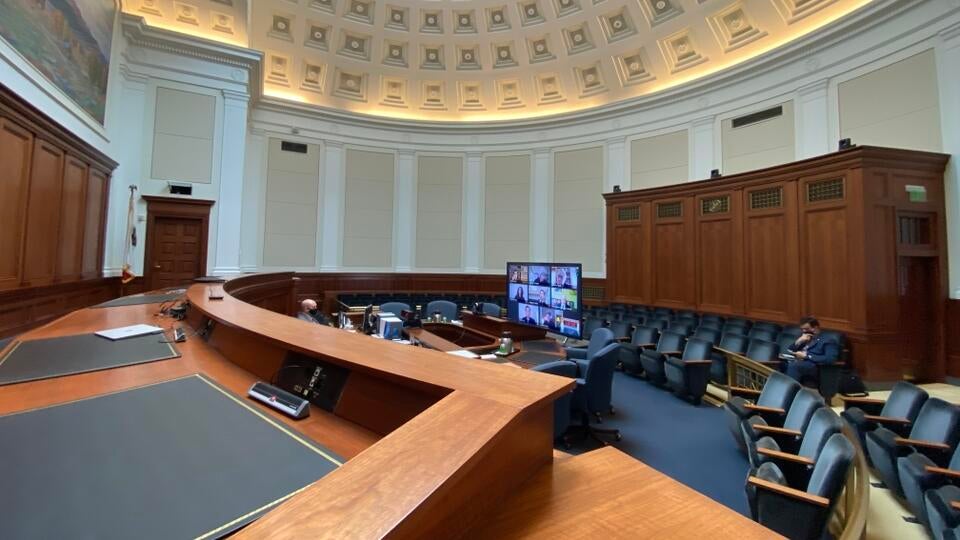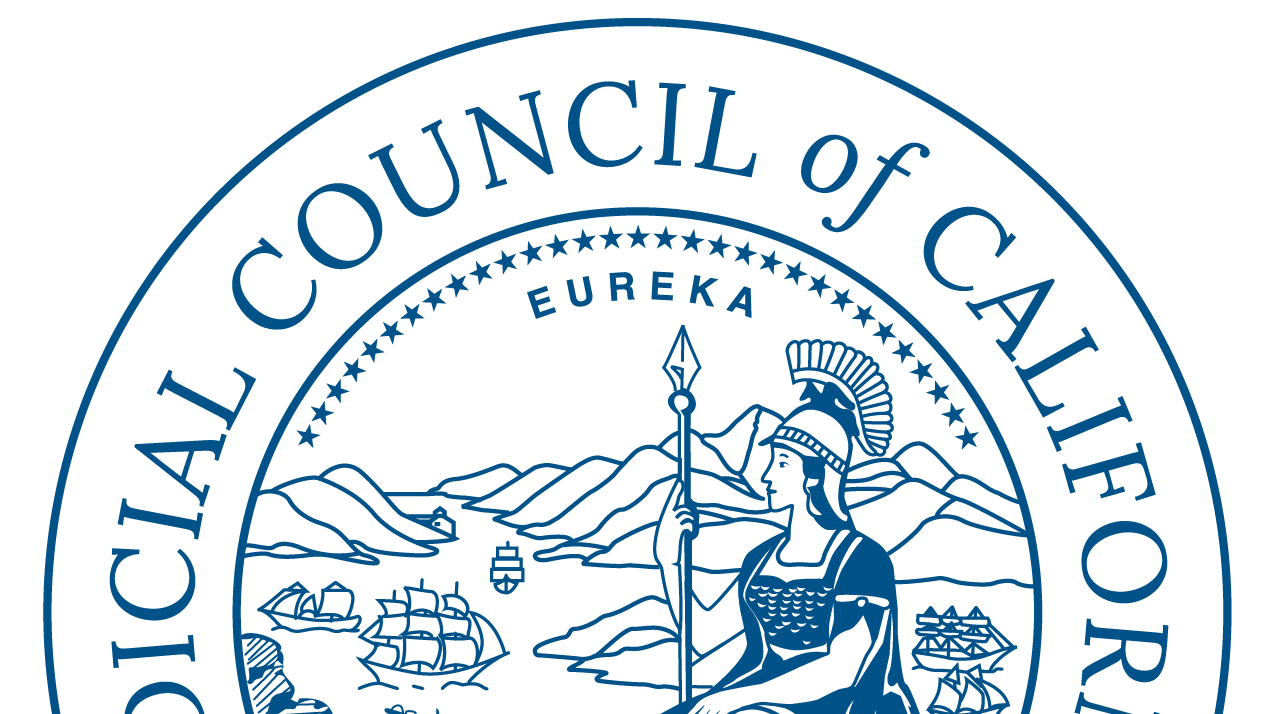Judicial Council to Work on Expanding Remote Access to Court Services
SAN FRANCISCO—The Judicial Council at its November 17 meeting received a report from the Ad Hoc Workgroup on Post-Pandemic Initiatives summarizing its work to identify, refine, and enhance successful court practices that emerged during the COVID-19 pandemic.
For instance, since the pandemic, courts regularly use remote technology to conduct case proceedings—with around 6,000 hearings conducted remotely around the state each day.
“We learned so much about the adaptability, creativity, and ingenuity of the trial courts and justice partners,” said Justice Marsha Slough (Ret.), who chaired the workgroup. “The input we heard in our listening sessions made it very clear that providing access to the courts through the use of remote technology is an access to justice issue. Individuals who face barriers to accessing their court proceedings in person, can effectively resolve those issues when they can appear remotely.”
The report highlights the workgroup’s efforts and recommendations outlined in its interim reports, which included:
- Expansion of remote access on a permanent basis for most proceedings
- Consideration of conducting juror questionnaires, hardship forms, and selection online
- Recommendations on case and proceeding types to conduct remotely, protocols for ensuring court users fully understand their options, and statewide guidelines to ensure court users receive the best possible levels of service and access
“The workgroup was a remarkable opportunity born out of an extraordinary crisis,” said Judge Marla Anderson, who served on the workgroup. “It was an opportunity to not only self-assess and examine how courts were able to pivot and adapt in a crisis, but also to consider how to maximize innovation to better respond to the needs of court users and the public.”
The report also underscores the workgroup’s recommendation that the council’s advisory bodies and staff should research the possibility of establishing virtual visitation options in family and juvenile law, allowing remote appearances in traffic infraction cases, and expanding remote access and communication between in-custody defendants and their attorneys. Watch
Other Items on the Council Meeting Agenda:
Report on Hybrid Courtrooms
The council received the final report studying hybrid courtrooms, which identified key concepts to help ensure an effective forum in which all participants could communicate and interact with the court, the other parties, and court staff. The report also provides recommendations on developing a request for proposal for technology equipment that would help expand the capability of courtrooms to conduct remote proceedings. The Chief Justice directed the council’s advisory committees to further review the report, develop a roadmap for furthering its goals, and submit a proposal for the council’s consideration. Watch
New Requirements for American Sign Language Court Interpreters: The council approved recommendations to address the shortage of American Sign Language (ASL) court interpreters, which included approving the Texas Office of Deaf and Hard of Hearing Services Board for Evaluation of Interpreters as a testing entity and developing a proposal to certify persons with ASL generalist credentials to perform work in the courts. Only 39 certified ASL court interpreters remain currently active in California. Watch
Court Adoption and Permanency Month: The council acknowledged Chief Justice Patricia Guerrero’s signing of a resolution proclaiming November as Court Adoption and Permanency Month. The resolution recognizes the ongoing efforts of California’s juvenile courts and their justice partners to provide children and families with access to fair, understandable judicial proceedings leading to timely, well-informed, and just permanency outcomes. The resolution also notes that state laws require courts to ensure that social services exercise due diligence in locating and engaging relatives and extended family members as the preferential placement for children. Watch
The complete council meeting agenda and council reports are posted to the California Courts Meeting Information Center. A link to a live webcast of the meeting will be on the California Courts website on the day of the meeting.



